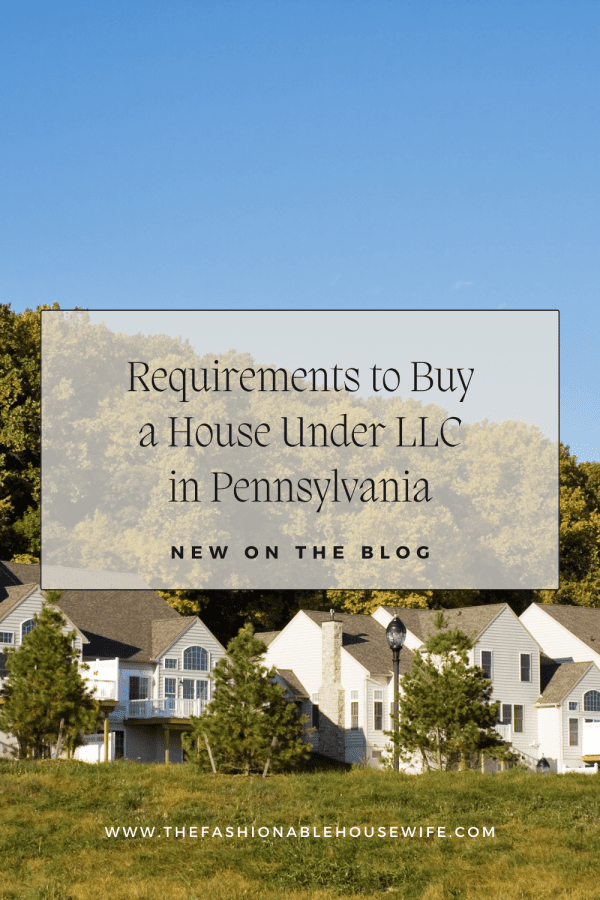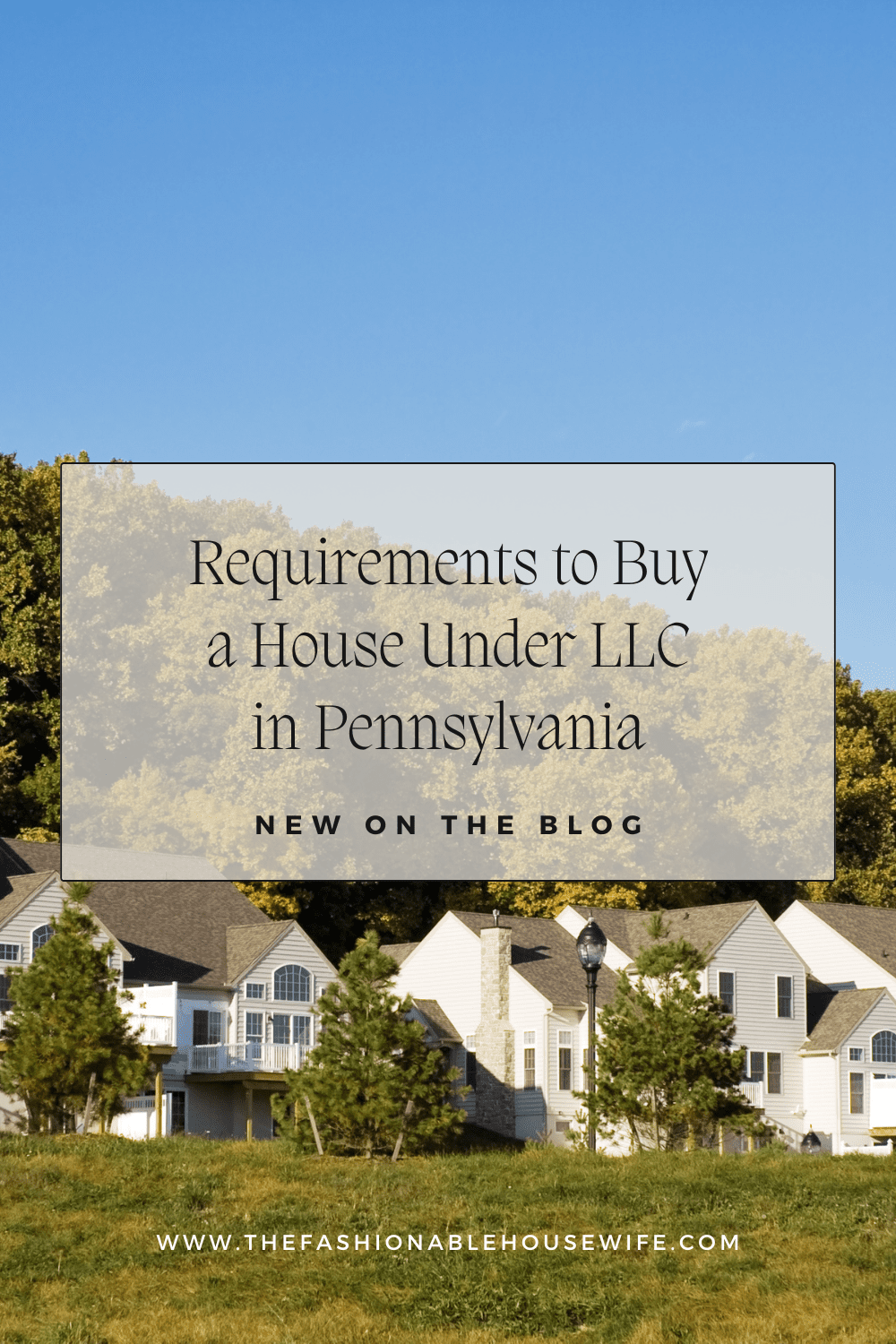Requirements to Buy a House Under LLC in Pennsylvania

In the picturesque landscapes of Pennsylvania, where each town emerges with its own history and character, purchasing real estate can be both an exciting and overwhelming process. Amidst the clinking of coffee cups in a small café in Pittsburgh, two seasoned business partners discuss the prospect of expanding their portfolio through acquiring a residential property under an LLC. This scenario is becoming increasingly common as investors and business-minded individuals look to real estate as a substantial asset for growth and security.
Understanding the Basics: What Does It Mean to Buy a House Under an LLC?
Buying a house under an LLC, or Limited Liability Company, offers not just privacy but a layer of protection from personal liability. This means that any debts or lawsuits related to the property are the responsibility of the LLC and not the individual members. Moreover, this setup can provide tax advantages, including the potential for pass-through taxation, where the LLC itself is not taxed, but the income is reported on each member’s personal tax return.
Key Requirements to Buy a House Under LLC in Pennsylvania
The path to owning a house under an LLC involves several critical steps, each woven intricately with legal and financial threads:
- Establishing the LLC: The first sip involves forming an LLC in Pennsylvania by filing the required documents with the Pennsylvania Department of State and paying a filing fee.
- Obtaining an EIN: Next, you must acquire an Employer Identification Number from the IRS. This step is akin to obtaining a social security number for your LLC and is essential for tax purposes.
- Opening a Bank Account: Just as the aroma of freshly brewed coffee cannot be appreciated until it is distinct, an LLC needs its own bank account to ensure that finances are clearly separated from personal finances.
- Real Estate Acquisition: When selecting a property, the transaction must be made in the name of the LLC. All contracts and official documents should reflect the LLC’s involvement.
Navigating the Financial Implications
“I remember the initial flood of questions we had,” recounts Sarah, one of the partners, her eyes reflecting the soft light of the café. “But getting clear on our financial standing was perhaps the most comforting step.”
Funding the purchase through a mortgage can be challenging as not all lenders are willing to provide loans to LLCs without personal guarantees from the members. However, with adequate equity and a strong investment plan, securing finance through commercial lending avenues becomes feasible.
Critical Challenges and Strategic Solutions
Zoning and Compliance: It’s crucial to ensure that the property meets all local zoning laws, which can be a complex web to untangle. A simple visit to the local municipality office, much like picking a path through the colorful streets of a Pennsylvanian town, can provide clarity.
Insurance Needs: Insuring a property under an LLC can differ greatly from personal property insurance. Engage with insurance providers who specialize in commercial properties to ensure adequate coverage – the protective umbrella your investment needs.
Embedded Emotional and Financial Security
Imagine the security of knowing that your personal assets are shielded, much like standing under a sturdy gazebo while spring rain patters around you in the peaceful Pocono Mountains. This piece of mind is invaluable for LLC members, especially when unexpected legal matters arise.
Frequently Asked Questions
Can an LLC qualify for residential mortgage loans?
- Typically, traditional residential mortgages are not available to LLCs. Commercial loans or personal loans with business terms are more commonly pursued.
Are there tax benefits to buying a house under an LLC in Pennsylvania?
- Yes, LLCs enjoy pass-through taxation and other benefits such as potential deductions related to property management and operations.
How does owning property under an LLC affect personal liability?
- It limits personal liability concerning the property. Creditors cannot pursue personal assets of the members of the LLC.
What are the ongoing requirements for an LLC owning property?
- The LLC must remain in good standing with the state, comply with all filing requirements, and manage proper accounting practices.
Can an LLC sell the property easily?
- Yes, but the sale must be authorized following the LLC’s operating agreement and state law.
Concluding Reflections
As the discussions wind down and the last of the coffee is sipped away, our entrepreneurs in Pennsylvania understand that buying a house under an LLC, while complex, offers substantial benefits. From personal asset protection to potential tax advantages, the strategic decision to use an LLC structure for buying property is a testament to the prudence and foresight of a discerning business mindset in the ever-evolving real estate market of Pennsylvania.

